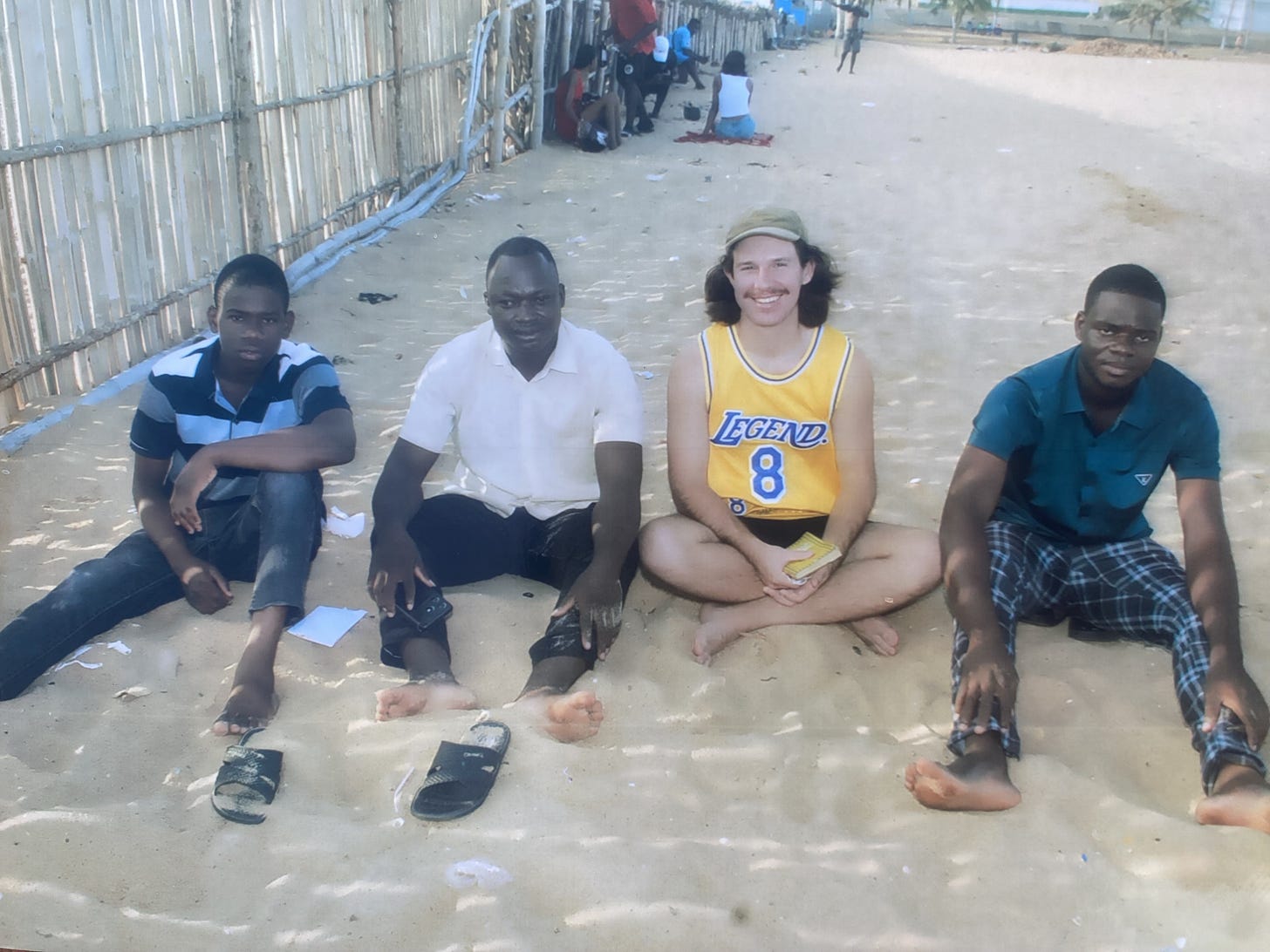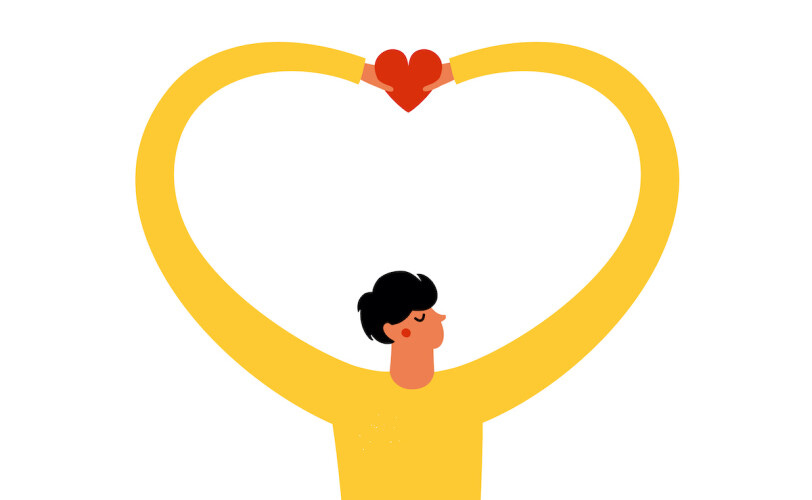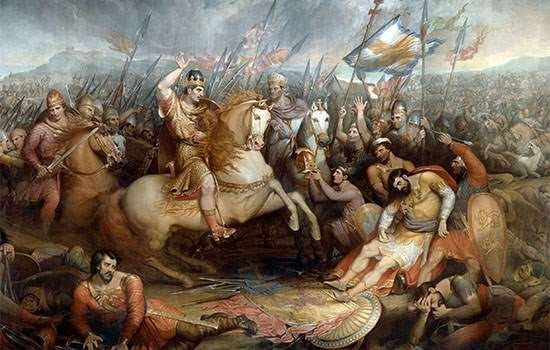Reconnaissance: The French secret to gratitude
Our definition of gratitude is incomplete. Its full meaning is described in the merging of two international languages: French and English.
Meet my gratitude teacher - a 7yr old beggar
Even with closed eyes I could tell he’d sat too close.
I wasn’t scared of unpredictability – otherwise why would I have spent the past month hanging out the side of tuk-tuks and pushing my gastrointestinal capacity to the limit. Still, India was no joke, one should be vigilant to danger, and plus, I secretly like excuses to break my hour long meditation sits.
My eyes opened to a young boy in tattered clothing, perhaps 6 or 7, looking at me, eyes beaming with recognition. In his hand he held a small candle resting upon a paper liner. He enthusiastically gestured towards the candle, and then back to me. ‘Yesterday, I give to you’ he said.
After a few seconds I remembered. The previous evening, amongst a throng of worshippers at the Ganges, child beggars squeezed between the crowd, offering candle prayers.
As he looked up at me, I realised I must have taken the candle from him the previous night. We spoke what few words of English he knew, I bought another candle, and we released it into the river together.
Touched, I reached into my wallet for any extra money to give to this bright young boy. I was almost out of cash and had meant to go to the ATM that morning. As such I showed him my near empty wallet, giving my remaining ₹50(rupees)/$1.
He bowed, thanked me, and shortly after continued his desperate walk through the city.
I saw him again three days later. This time, it was I who excitedly approached him. He had been in my thoughts since that first morning, and I was determined to carry around extra cash should I see him again.
We spoke at first, his childhood described via the few words of English he’d acquired on the street – and then we sat together silently for 10 minutes. As he went to leave, I procured ₹1000/$20. He turned to me, bowed and said thank you, and went on his way. Identical to the previous encounter.
I was shocked.
When I gave the ₹1000 note, I expected a momentous reaction, with many thanks, smiles, practically for him to jump up and down with happiness. After all, I had given him 20x more than previous, and thus, was expecting a proportionate reaction. $20 was a lot of money for this child. Throughout these three encounters, I had watched him walk around to many groups of people, and he was ignored every time - this sum would surely support him for a long time.
But no. same reaction.
I sat there, dumbfounded.
But, little by little, over the following hours, days and weeks, I began to understand just how wise this boy was. And conversely, how much I had yet to learn…
He taught me that this definition is incomplete
The three largest misconceptions about gratitude:
Gratitude = happiness. i.e. ‘I’m so happy that worked out the way it did.’ Therefore, when we aren’t happy, gratitude is cast aside. How can I be grateful right now?
Gratitude = loss of ownership of the outcome. For example, ‘yes, I am grateful that I passed my exams, but it was rather in my own hard work that I achieved it’.
Gratitude prevents further action. If I’m grateful, I’m settling for this life, so I won’t grind harder for a better future.
The purity of this word, gratitude, can easily become lost. Indeed, it was lost within me.
Thankfully, it was not lost by our English and French ancestors. They encoded within their ultimate legacy – language – the secret to rediscovering the essence of gratitude.
The secret to gratitude was written by our ancestors
The French word for gratitude is reconnaissance. It comes from the word reconnaître (to recognize), which can be broken down to re (again) and connaître (to know). Reconnaissance can be translated as ‘recognition’, however today lets focus on its other usage – gratitude.
Gratitude, for the French, is to know, again and again.
Reconnaissance is also an English word. How?
The English and French languages are inextricably linked. If you are unfamiliar with the Frenchman William the Conqueror, his invasion of England and the subsequent French rule over the following 1000 years, read this footnote before returning:1
After 1066AD, our English ancestors were newly exposed to a foreign language. They heard French aristocrats speak of reconnaissance, and incorporated it into English. They gave it a new usage, the one that English speakers are familiar with today. Reconnaissance in English means to survey, search, and observe.
Together with the French definition, this gives us the perfect framework to approach gratitude → a deep search of knowledge.
Conduct a deep search of the world
How much do we know?
How knowledgeable are we?
Not of our particular field of work, not of current world events.
Knowledge of the world. How it functions. How all things, human and non-human, interact to shape this present moment. And not merely on the physical level, like how biologists or anthropologists study. But at the deeper, subtler level.
· How the love that sprouts within our hearts causes us to perform actions with worldwide butterfly effects.
· How the love of new life forged the career of the obstetrician that helped my mother give birth to me.
· How the shade and backrest of the tree I lay on was once a mere seed, planted with selfless love by someone knowing they will never see it blossom.
· How, when I become sick and enter hospital, a team of people are working to cure me - and notwithstanding the fact that without my mother’s care and those close to me, I would have died in infancy and not experienced all that I have.
When one recognises the nature of the reality that we live in to the true depth, the reality that has allowed us to be here today, immense gratitude for everything within this reality becomes automatic.
That’s not a state of mind we find ourselves in. I know.
So, to foster this knowledge, one needs to conduct a deep search. A search of how they have journeyed through life.
‘It takes a village to raise a child’ is very true. And indeed, there was a village that raised each one of us, whether this feels obvious or not. Even the hypothetical child born into the forest with no human contact was still raised by mother nature, by her offerings of sun, the seasons that grow trees and bring new food, the water from oceans delivered via the clouds to lakes and rivers.
This village has not stopped, even as we become older. This same village continues to work to support us.
This village became apparent for me while hitchhiking in the freezing cold of Iceland. I realised back home I’ve always been dependent on others - even with a car, without the builders of the frame, the shippers of its fuel, the constructors of the roads, I can’t drive anywhere. Our interdependence is fundamental, and should be cherished as such.
As we conduct reconnaissance, the village becomes larger, or rather, our knowledge of the village becomes larger. Indeed, this village has always existed, acting with unconditional love, conspiring in our favour.
It is this deep level of ‘knowing’ that the French are referring to when they speak of gratitude.
How to be fully grateful
This was all understood by the Indian child.
I remained seated long after he left.
I began to look inward.
Why was I so wrong about his response? Shouldn’t he have been more grateful?
I interrogated my definition of gratitude.
I realised that in my life, feelings of gratitude had manifested only in times of overt displays of generosity. It didn’t take deep reflection to appreciate those moments. A local navigating me out of a dangerous situation, someone who bought me a free lunch - these were easy to be thankful for.
Smaller moments however, that required a bit more reconnaissance in the English sense of the word, remained buried deep in my psyche.
Put simply, I was only practising gratitude superficially. I was not investigating all the causes for my good fortunes, not looking deeply into all the acts of kindness and generosity from the ‘village’ of people that raised me and continue to shape who I am. I was not looking hard enough.
Here’s the kicker:
This manifested in my assumption of how others interpreted my good acts. I thought larger, more ‘generous’ acts would be better received, since I held the same view - hence why I expected a larger reaction from the boy. This assumption was wrong.
To become more grateful, we don’t need to boost our feelings of gratitude to the kindest acts in our life. Rather, the smaller events, the ones that require a bit more reconnaissance, should be brought up to this stronger level. The man driving the bus for me to get to work should be given the same gratitude within myself as the boss who promotes me that day. Both are giving love and allowing me to carry out my work in the way that is available to them.
No kind act is too small
A common question people as me is: ‘On your travels, which country had the nicest people?’ Well, while hitchhiking in Norway, I was given free food, transport and accommodation at the drop of a hat. Conversely, in Sub-Saharan Africa, most people I came across only had a warm smile to give. Others that could offered their hospitality and friendly conversation.
One could interpret these interactions and say, ‘the Norwegian people were so generous!’
Unfortunately we all tend to think like this. It’s short-sighted. Too focused on external objects and not enough examination of internal volition.
Taking the perspective that this boy taught me, I realised that bountiful amounts of generosity and goodwill existed within everyone I met. Their hearts sung love, inclusion and peace. What their bodies then initiated, through the objects they had acquired, looked different according to the person. But within the hearts of those that could only give a smile and well wishes, and the hearts of those who could give me food and shelter, existed generosity and kindness in equal quantity.
Even in those that tried to ‘deceive’ me, of which there were multiple, their hearts sung love for their family members, of which they were increasingly desperate to provide for. Even if this generosity wasn’t being directed at me, I can understand the reasons that caused this response.
One would presume long days wandering through the city, begging for money and food from such a young age would turn this boy cynical - however, the opposite was true.
He had undertaken a very deep reconnaissance of the world. In the first instance, I gave him all that I had, which was my remaining $1. Later, when I had more money, I could give more. But my mental volition was the same each time. In those moments, that wise boy recognised this, and thanked my heart’s volition, not the actions of my hands or mouth.
He had reached total peace with the world.
How should we practise gratitude?
The ‘re’ in reconnaissance? It points to another essential part of gratitude. It is a practise that should be done frequently. I like to practise my reconnaissance each morning. I think of and write down at least three things that I am grateful for. Applying what is discussed above, the more reconnaissance that I do, the subtler the things that I’m grateful for become.
Don’t forget self-gratitude. At the end of the day, conduct some reconnaissance on your past self.
What did you do that you’re now grateful for?
· Was it doing that hard thing you didn’t feel like doing?
· Was it having the wisdom to know you needed a rest day?
However small the act was, this reconnaissance generates positive feelings about yourself, feelings which you will want to receive again, creating a positive feedback loop of strong, positive actions. Importantly, these are not feelings of ego or self importance. You took that step of action, but it was only possible because you were put in that place with the help of so many others.
Our new definition
Gratitude is not denying yourself ownership of outcomes. It’s not just reserved for the best thing to happen to you this week. It doesn’t diminish what we have already achieved, or stop yourself from going further. 2
It’s for every moment. It drives us further, it gives us pause, a joyful pause, each time we reflect on it.
It’s a search conducted on others in the morning and conducted on yourself in the evening.
It’s a feeling shared with others. I say thankyou, mentally or verbally where possible, to everyone that has helped me in my journey. Now, these good feelings are shared, multiplying through the minds of others. The stronger in gratitude I become, the more people I recognise.
Hopefully I’ll reach a point where I understand the totality of everyone and everything that works to shape who I am, and yet to become. This deep reconnaissance fills my heart with joy and love.
It didn’t used to be like this. In fact, English and French languages couldn’t historically be further apart. English had branched from French 3500 years before Julius Ceaser was speaking Latin.
i.e. English has as much to do with French as it does with Urdu.
Then why is English made up of more French words (30%) than old English (26%) ?
Perhaps they would have remained forever separated, if it was not for an English King who never married or had children, whose death in 1066 triggered a power spill for the throne. One of the King’s distant relatives claiming to be the rightful heir laid in France - William the Conqueror, the Duke of Normandy. He and his army of 7000 men crossed the English channel, took the English throne, and began ruling over England for the coming centuries.
The Battle of Hastings would irreversibly shape the British people, culture, and language for the following ~1000 years.
I will write about the Battle of Hastings in a future article, but for now, check out these stories if you are interested:













Wow! Well written and very thought provoking.